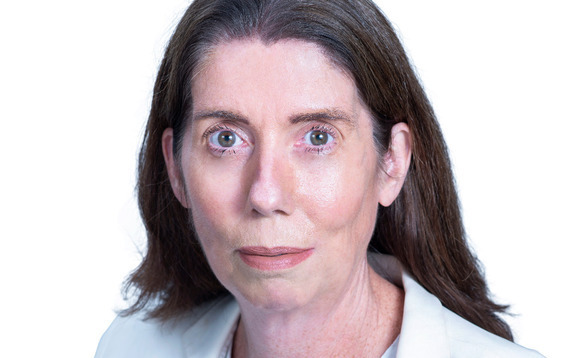
LP interview: Sun Hung Kai & Co

Lindsay Wright, CEO of the newly launched funds management unit at Sun Hung Kai & Co, is helping reposition a Hong Kong financial services mainstay as an alternatives investor
Sun Hung Kai & Co (SHK), known in Hong Kong since the 1960s for its capital markets services, has been gradually transitioning into alternatives since 2015, when it sold a 70% stake in its brokerage business to Everbright Securities. The remaining stake was disposed of last year. This roughly coincided with the hiring Lindsay Wright, formerly of Matthews Asia, as head of a new division focused on making LP commitments to emerging and first-time managers.
"There is significant investment experience, particularly in relation to alternative investment, plus a strong understanding of the needs of clients based on our experience in running one of the largest brokerages and wealth managers here in Hong Kong," Wright says. "The strategic vision is to further build on our alternative investment capability and track record, and pivot to a funds management model, which is a natural evolution."
SHK's alternatives program now accounts for about HK$14 billion ($1.8 billion) out of HK$43 million in total assets under management and is expected to be the new growth driver. Since the Everbright transaction, the firm's economics have been dominated by a lending business, which focuses largely on loans to individual consumers and small businesses across Greater China.
The alternatives portfolio was resilient during the worst of COVID-19, generating a 4.4% return in the first half of 2020. Private equity funds held value, remaining flat during the six-month period, while direct and co-investments returned about 19% compared to 11% for hedge funds. The consumer finance business, by comparison, experienced a 4% contraction in revenue during the period.
Platform building
This set the stage for Wright's engagement in July 2020 to develop the funds management platform with a focus on vehicle incubation and pipeline building. Early moves have included a $150 million commitment to East Point Asset Management, which was spun out by Simon Walsh, formerly CIO of SHK's public equities business. The firm has also backed a European quant fund from ActusRay Partners and a real estate fund managed by Multiple Capital Investment Partners.
Overlaying this activity has been a shift toward incorporating third-party capital into an historically balance sheet-driven strategy. A fund-of-hedge-funds team has been formed, and similar vehicles targeting PE and VC managers will come under consideration. In terms of balance sheet exposure, private equity currently outweighs hedge funds – but Wright emphasizes that the goal is to maintain a good mix.
"One of our key objectives is to look for capable, competent managers with strong track records principally across the spectrum of alternatives and support these managers to launch or accelerate their funds," she says. "We are committing a lot of our own capital to seed these underlying funds, so diversification is an important consideration."
The standout private equity commitment under Wright's direction has been Hong Kong-based E15 VC, a stage-agnostic technology investor set up by Philip Liang, an early SpaceX backer who began his career designing concept vehicles with famed architect Frank Gehry at the MIT Media Lab. SHK has followed the firm since its beginnings in 2017 and cited a strong performance by the debut fund. It anchored the latest vintage in January with a $15 million investment. The total corpus is $32 million.
E15 showcases a number of SHK's strategic priorities. First, there is a strong preference for managers in Greater China, especially if they're able to provide some exposure outside the region. E15's investments include Irish mental health platform Frankie Health and US medical robotics developers Vicarious Surgical and Auris Health. Auris was exited in 2019 to Johnson & Johnson in a $3.4 billion deal.
Second, technology and healthcare will be important focus areas going forward. These two sectors, which often overlap, already account for 70% of the alternatives portfolio. "This has resulted in an uplift in the private equity and direct co-investment portfolio being managed," Wright observes.
Third, SHK wants to move quickly. It provided E15 with a warehousing facility that allowed four investments to be made while the GP was still setting up its fund and waiting for licenses.
Fourth, having a light touch with managers is important. SHK offers operational support and houses some funds, but it prefers a revenue-share model – rather than taking equity stakes – as a way of minimizing LP influence on managers.
Wright notes that this approach creates, over time, a long-term annuity stream similar to a minority interest in a multi-boutique. "My experience in the market has taught me that independence is key to emerging managers," she says. "We offer a mature, grown-up model for our partners."
Hybrid approach
Wright's team currently numbers about 15, including back-office and investment professionals. James Dore, COO for the funds management unit, left last month to head up a multi-strategy manager called 1020 Capital Management, according to his social media profile. Nevertheless, a rapid staff build-out is expected in the near term.
Earlier this year, SHK hired Allen Sing to lead the hedge fund allocation business. Sing, who most recently headed the global fund-of-hedge-funds business at CITIC CLSA, is charged with expanding both research capabilities and assets under management. Meanwhile, Jonathan Cheung, an analyst on Sing's team at CITIC CLSA, has also come on board.
"We're seeing a convergence of public and private markets in the funds we are reviewing. Some of the newer hedge funds want to allocate or target 20-30% of their portfolio in private markets," Wright says. "Either the managers have full discretion or there is a structure so investors can opt-in or opt-out. This crossover is becoming increasingly normalized, and it has an interesting impact for us in terms of evaluation skills for our team. You need people who can evaluate managers on the public side and the private side."
Latest News
Asian GPs slow implementation of ESG policies - survey
Asia-based private equity firms are assigning more dedicated resources to environment, social, and governance (ESG) programmes, but policy changes have slowed in the past 12 months, in part due to concerns raised internally and by LPs, according to a...
Singapore fintech start-up LXA gets $10m seed round
New Enterprise Associates (NEA) has led a USD 10m seed round for Singapore’s LXA, a financial technology start-up launched by a former Asia senior executive at The Blackstone Group.
India's InCred announces $60m round, claims unicorn status
Indian non-bank lender InCred Financial Services said it has received INR 5bn (USD 60m) at a valuation of at least USD 1bn from unnamed investors including “a global private equity fund.”
Insight leads $50m round for Australia's Roller
Insight Partners has led a USD 50m round for Australia’s Roller, a venue management software provider specializing in family fun parks.








